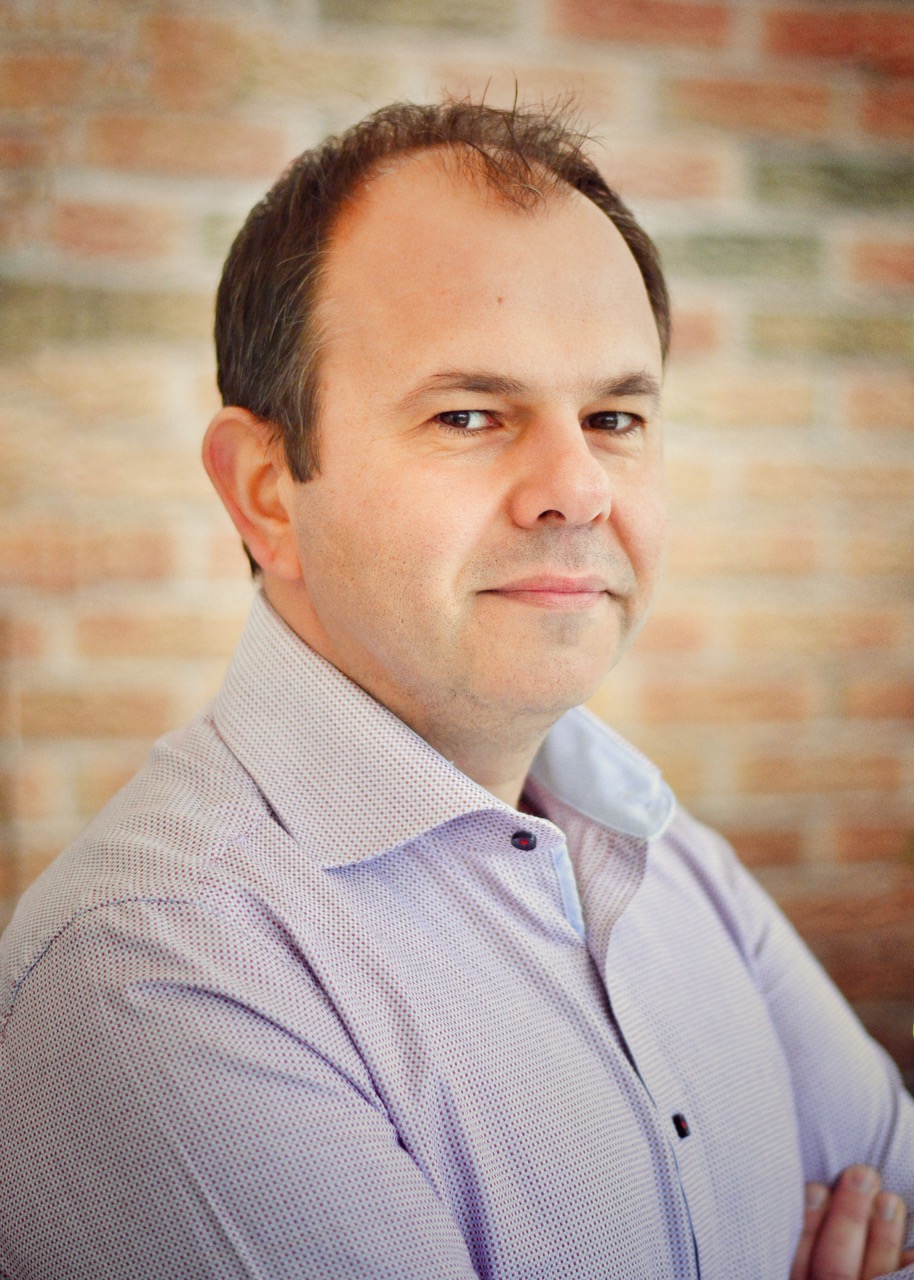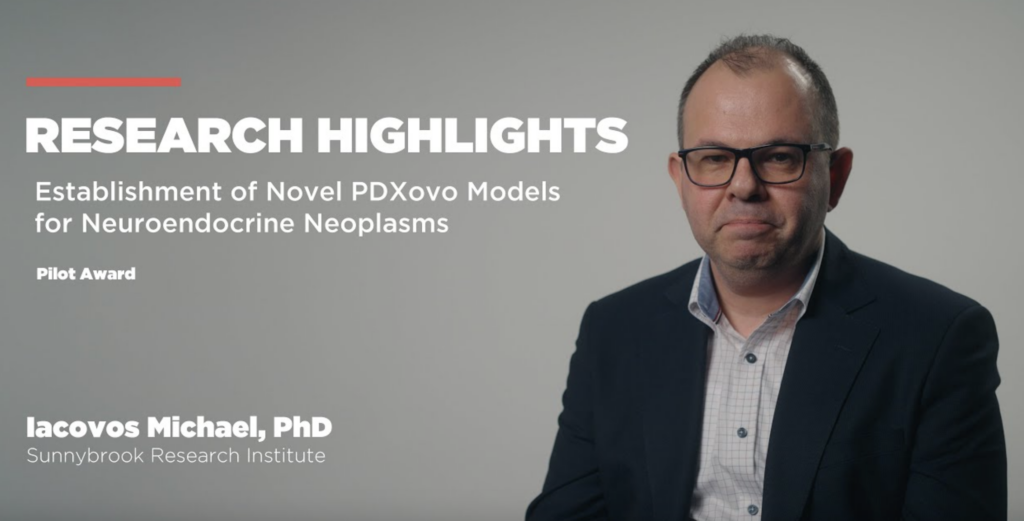Project title: Establishment of novel PDXovo models for neuroendocrine neoplasms
Iacovos Michael, PhD Sunnybrook Research Institute, University of Toronto

- Status: Completed
- Year(s): 2022
- Grant Type: Pilot
- Research Type: Basic
- Primary Tumor Site: Multiple
- Area of Inquiry: Models
Description
Dr. Michael and his colleagues will establish novel patient-derived xenograft (PDX) models for gastroenteropancreatic-neuroendocrine neoplasms (GEP-NENs), called PDXovo models. These models will enable the team to characterize the response to various treatments and identify new therapeutic strategies.
What critical NET problem/question will researchers try to answer?
Cancer models are essential for understanding the molecular pathways implicated during disease progression and evaluate the effectiveness of new treatments. However, there is currently a limited number of NET patient-derived models, hampering researchers’ ability to develop new therapies and identify patient-specific treatments.
Why is this important?
This research will take advantage of the investigators’ expertise in establishing PDX models and the relatively high volume of fresh tissue samples from patients who have NENs to establish the first PDXovo models for GEP-NENs and evaluate the response to new drug combinations.
What will the researchers do?
Dr. Michael and his team will establish PDXovo models by transplanting fresh patient tumor specimens in the chick embryo in ex ovo “outside the eggshell” format. They will then use these models to assess the response to the various therapies currently approved in the clinic.
How might this improve treatment of NETs?
The successful derivation of GEP-NEN PDXovo models will allow for the evaluation and guidance of the use of patient-specific treatments in the clinic. The latter may result in higher objective response rates, ultimately extending a patient’s overall survival and quality of life.
What is the next step?
In the future, our PDXovo platform may be adapted in other cancer centers worldwide and enable precision oncology for patients with GEP-NENs. The investigators will also continue using this platform to study the response of neuroendocrine tumors to various treatments and identify new targets for drug development.
Outcomes:
Click below to watch an update from Dr. Michael:
“Neuroendocrine tumors (NETs) are rare cancers arising in different organs in the body, mainly in the gastrointestinal (GI) tract and pancreas, called gastroenteropancreatic NETs (GEP-NETs). These tumors vary in their origin, appearance, and behaviour. Developing patient-derived preclinical models could help us better understand the biology of GEP-NETs and result in the development of more effective therapies. However, establishing these models from low-grade GEP-NETs has not been successful. In this study, we established and characterized patient-derived xenografts for GEP-NETs in the avian model, referred to as PDX ex-ovo models (PDXovo).
In the PDXovo system, fresh tumor fragments are implanted into the highly vascularized chorioallantoic membrane (CAM) of the fertilized duck embryo. We showed that GEP-NET fragments can be successfully engrafted in the avian CAM and remain alive for the assay period. Using high-frequency ultrasound, we showed that the PDXovos are vascularized by the avian circulatory system. Immunostaining at the endpoint of the assay revealed that the PDXovos maintain the original characteristic tumor nest architecture of neuroendocrine tumors and exhibit low proliferation and apoptosis. We foresee that the PDXovo system will be valuable for evaluating the effect of various drugs on GEP-NET tumors and will provide an efficient system to understand each tumor’s unique features.”
Additional Details
- City: Toronto
- State: Ontario
- Country: Canada
- Grant Duration: 1 year
DISCLAIMER
NETRF funds laboratory research to understand the development of neuroendocrine tumors and translational research to explore new concepts in treatment. Research grant descriptions and research updates from NETRF are not intended to serve as medical advice. It can take years for research discoveries to be fully validated and approved for patient care. Always consult your health care providers about your treatment options.

